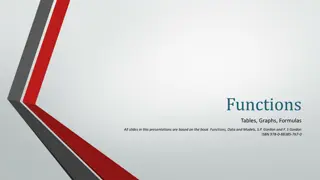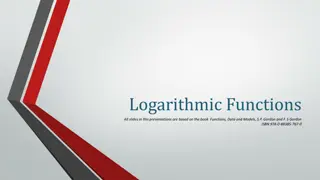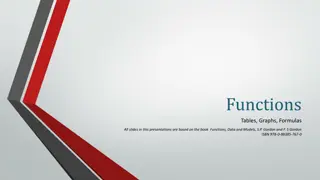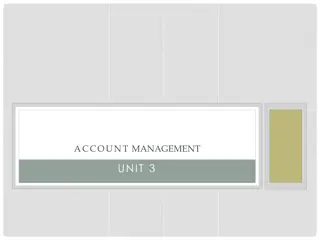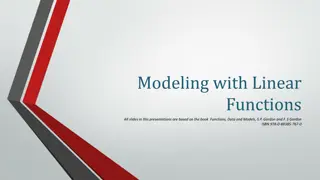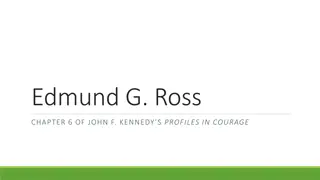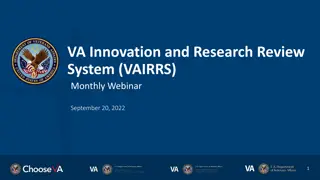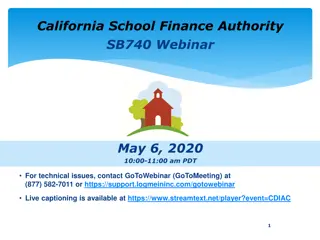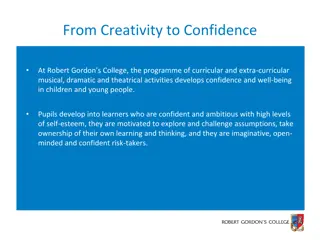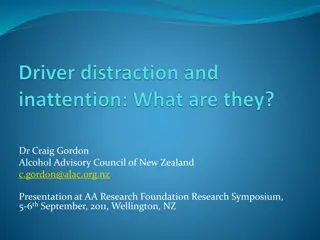
Understanding Faculty Development in Academic Integrity
Explore the journey of a seasoned academic professional discussing student assessment, grading practices, and combating cheating in an educational environment. Discover the impact of early experiences and personal motivations on shaping views towards education and fairness.
Download Presentation

Please find below an Image/Link to download the presentation.
The content on the website is provided AS IS for your information and personal use only. It may not be sold, licensed, or shared on other websites without obtaining consent from the author. If you encounter any issues during the download, it is possible that the publisher has removed the file from their server.
You are allowed to download the files provided on this website for personal or commercial use, subject to the condition that they are used lawfully. All files are the property of their respective owners.
The content on the website is provided AS IS for your information and personal use only. It may not be sold, licensed, or shared on other websites without obtaining consent from the author.
E N D
Presentation Transcript
IEEE Global Virtual Workshop on Early Career Faculty Development: Student Assessment, Grading, and Cheating Dr. Ann Gordon-Ross Associate Professor Department of Electrical and Computer Engineering University of Florida, Gainesville, Florida, USA + Also Affiliated with NSF Center for High- Performance Reconfigurable Computing
Who Am I? Education B.S. (2000) and Ph.D. (2007) in Computer Science and Engineering at the University of California, Riverside Work experience Grader, teaching assistant, lecturer Associate Professor of Electrical and Computer Engineering at the University of Florida Associations NSF Center for High-Performance Reconfigurable Computing (CHREC) at the University of Florida Faculty advisor for the Women in Electrical and Computer Engineering (WECE) at the University of Florida Faculty advisor for Phi Sigma Rho at the University of Florida Volunteer mentor
Personal Motivations and Influences Both of my parents are educators Mother Started out as teachers aid for my elementary school Obtained her degrees and qualifications to become a teacher Has been teaching mostly middle school for 25+ years Father Retired high school woodshop teacher of 35+ years Early influence on my views of grading and assessment Proper and fair assessment Assignment of responsibility Need to weed out cheaters! Everyone witnesses cheating in K-12 years
Early Experience - Undergraduate Still witnessed rampant cheating amongst peers Frustrated by lack of diligence by professors and graders Cheaters obtain the same degree as non-cheaters, no way to distinguish when competing for a job Undergraduate grading experience Served as grader for many courses Diligent about catching cheating Easy with programming courses Online programs, such as Moss from Berkeley automatically compare code Sense of accomplishment by catching those that cheat their way through the system
Early Experience - Graduate Served as instructor for a key high-level programming course Course was critical and necessary for advancement in degree Still diligent about thwarting cheating! New challenges: Fair student assessment Test creation Grading scales Strictness on course policies Watching for cheating during tests Etc.
Current Experience Associate Professor Early experiences and influences prepared me well Not many have the opportunities I did (e.g., grader, instructor, teaching assistant) Grateful for these experiences Teaching brings about new challenges Following slides give my perspective and advice to solve these challenges All are hinged on personal experiences -> key motivations!
Fair Assessment and Adherence to Course Policies Key to assessment BE FAIR Do not make any exception for one student that you do not present to all students E.g., Do not accept one late homework, unless all students have the opportunity NO PER-STUDENT SPECIAL TREATMENT! Unbiased grading Some students stand out in the crowd Must grade all students the same, even those that stand out as exceptional Adhere strictly to course policies Set a standard and do not deviate Students will continue to take advantage if you allow any small deviation. E.g., Late homeworks will not be accepted! If you say, stick to it!
Grading Scales Set a grading scale for the course Do not deviate from the scale (within reason < 1% might be acceptable to bump up a demarcation) Curve per-assessed item, not the entire course at the end More fair assessment Granularity should be small (e.g., one bad test) Curving at the end lumps all scores into one If you curve per assessed item, no need for curve at end
KEY! Establish Responsibility The students earn a grade, you do not assign a grade Grade responsibility is the student Otherwise they think you can arbitrarily change or assign their grade Progress reports If few graded items, easy for them to calculate If many, can send progress reports List grade attained on each graded item Calculate what is needed to get a particular grade in the course E.g., you must get 86% on the remaining material to attain a B+ in the course.
Cheating Always keep a keen eye Your good students will appreciate it! University level repercussions Depends on university policy Most have a two strike policy expelled on second offense Lying/denying and found guilty are the two strikes = expulsion Admitting to is one strike, not on transcripts, does not leave private university file Course repercussions I advocate NO tolerance Cheating = automatic F in course But consider how it affects GPA Does the F count in GPA after the course is retaken? Must consider how the punishment fits the crime Do not let the students sway you, they will have many excuses, but none are fair to ignore for the honest students
Summary Determine a grading scheme and stick to it consistently Be fair to all students If you give one student a special opportunity, open it up to all It makes it easy say no, ask how they would feel if someone else had the opportunity and they did not Establish student-grade responsibility You assign the grade they earn Watch for cheating be firm It is okay to make exceptions! Smaller class sizes allow personal evaluation of students E.g., you can tell when they truly need more time for an assignment Extenuating circumstances E.g., personal/emotional issues


